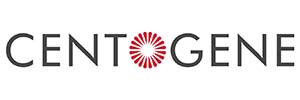CONTACT
We will reply as soon as possible.
Enevia Health, LLC
30 N Gould Ste N, Sheridan, WY 82801, USA
The CentoGenome is the ideal solution for the diagnosis of rare and neurodegenerative diseases. It serves as a first-line test to identify a molecular diagnosis in patients with suspected genetic disorders, or as a second-line test for patients with negative previous genetic test results. The CentoGenome offers a potentially cost-effective alternative to establishing a molecular diagnosis compared to performing multiple independent molecular assays.
Recent studies, statements, and recommendations from the Society for Medical Genetics on clinical WGS support it as a first- or second-line diagnostic test when a patient's symptoms or family history suggest a genetic cause of diseases.
This is especially the case when the clinical diagnosis is associated with a high level of genetic heterogeneity and when WGS results in relevant clinical improvement and is a more cost-effective approach. For example, the American College of Medical Genetics and Genomics (ACMG) recommends the use of exome/genome sequencing as first-line testing for children with intellectual disabilities, developmental delays, or multiple congenital anomalies.
We especially recommend the CentoGenome for patients in the following cases:
Symptoms are very broad, complex, or nonspecific and do not point to a specific disease or typical phenotype, such as:
Previous tests did not provide a conclusive diagnosis, such as:
Rapid diagnosis is a medical necessity and there is not always time for serial testing strategies, as seen with:
Our most recent study, where we present the largest cohort of patients to have performed WGS in a clinical setting to date, demonstrated the diagnostic strength of WGS as the most comprehensive genetic test and its strengths compared to WES. The results also support that WGS should be considered the "standard of care" for genetic testing, as well as an independent first-line test for patients with rare diseases.
This test can be performed according to the approach of:
Genetic Test Only: In this approach, genetic testing is performed only on the patient, not including their biological parents. This type of test can be useful in identifying inherited or de novo genetic mutations in the affected individual, and can provide relevant information for the diagnosis and treatment of a variety of genetic diseases and disorders. However, by not including the parents in the test, it is not possible to determine if a specific mutation is inherited or de novo, which may limit the interpretation of the results in certain cases.
Duo genetic test: In the duo approach, genetic testing is performed on both the patient and one of their biological parents, usually the one with symptoms or a family history related to the condition being investigated. This type of test can be useful to establish whether a specific genetic mutation is inherited or de novo, and to identify genetic variants associated with diseases and disorders that follow a dominant pattern of inheritance. However, by not including both parents, the interpretation of the results may be more limited compared to the trio approach.
Trio genetic test: In the trio approach, genetic testing is performed on the patient and both of their biological parents. This type of test is especially useful for identifying de novo mutations and for gaining a more complete understanding of heredity and the genetic contribution to a patient's condition. By analyzing the genome of both parents, it is possible to determine whether a mutation is inherited or de novo and also to identify genetic variants that follow patterns of recessive, dominant, or X-linked inheritance. This approach provides the most complete and accurate information for the diagnosis and treatment of genetic diseases and disorders.
If you want to download the test results files you took, you must do so within one month of receiving them. Otherwise, the laboratory will charge you an additional cost for the download service.

Important: The shipment of the sample to the laboratory is done by yourself by ordinary mail, this shipment must not exceed 7 days.
We will reply as soon as possible.
30 N Gould Ste N, Sheridan, WY 82801, USA
Our groups are the ideal platform to learn and share your scientific concerns about neurodevelopment issues
*Our purpose is informational only, it is not intended to be a substitute for medical advice, diagnosis or treatment.

This plan is exclusive for people who are responsible for or suffer from some neurodevelopmental pathology such as (TEA, ADD, ADHD, OCD, SLI and other learning disorders, as well as Rett syndrome, Tourette syndrome, PANS, PANDAS , LYME…
With this plan you can benefit from discounts on more than 100 laboratory tests, medical visits, supermarkets and therapies and you will have access to all the tests with the BIGGEST possible discount.
Enevia Health, following its commitment to health and well-being, has created another membership designed for all those people who need these tests and want to benefit from the facilities offered by Enevia.
Subscribe to our HEALTH PLAN and start enjoying the advantages we offer you.
In this modality you will NOT pay annual membership, you will be able to buy on our website but you will not be able to benefit from the discounts that those people subscribed to one of our plans have.
We are working on our website. For any queries, you can contact our customer service team at atencionalcliente@eneviahealth.com